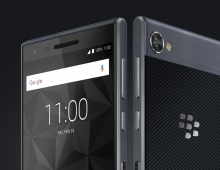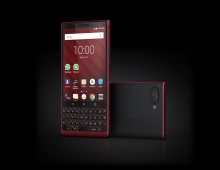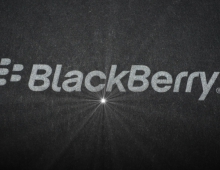
BlackBerry Closer to Shutdown
The U.S. Supreme Court on Monday pushed the maker of the BlackBerry e-mail device a step closer to a possible shutdown of U.S. service, refusing to review a major patent infringement ruling against the company.
The high court rejected without comment a petition by Research In Motion Ltd. to review a federal appeals court ruling, which upheld infringement charges by NTP Inc., a U.S. patent holding company.
NTP said the court rejection had "closed the final path for RIM to avoid liability" in the case and cleared the way for a lower court to issue an injunction that would bar most U.S. BlackBerry sales and service.
However, RIM downplayed the court's action, saying it had "no bearing on the merits of the outstanding issues" that are still pending before the Richmond, Virginia, trial judge in the case.
"RIM has consistently acknowledged that Supreme Court review is granted in only a small percentage of cases and we were not banking on Supreme Court review," RIM's vice president of corporate marketing Mark Guibert said in a statement.
Chief Justice John Roberts, on October 26, turned down a request by RIM to stay the lower court's patent infringement ruling while the high court considered whether to hear a RIM appeal.
In seeking the appeal, RIM had questioned whether it should be subject to such a patent infringement ruling in U.S. courts in light of the fact that the company's main e-mail switching facility was located outside the United States, in Canada.
The case goes back to 2002, when patent holding company NTP successfully sued RIM in a lower court. It won an injunction in 2003 to halt U.S. sales of the BlackBerry and shut down its service, although that ruling was stayed pending appeal.
The appeals court scaled back the initial ruling, but still concluded that RIM infringed on NTP patents.
RIM and NTP had reached a tentative $450 million settlement on the dispute in March, but the deal fell apart in June. RIM wants the lower court to enforce the agreement.
NTP has asked the trial judge in U.S. District Court for the Eastern District of Virginia to move ahead with the injunction. It has said an injunction would not affect BlackBerry products used by U.S. federal, state, or local governments.
In its statement issued on Monday, RIM noted that it had given the trial judge in the case, U.S. District Judge James Spencer, good reasons not to go forward with an injunction against the company.
In briefs filed before Spencer on January 17, lawyers for RIM argued that Spencer should back away from any injunction for a number of reasons including an "exceptional public interest" in maintaining uninterrupted BlackBerry service for national security officials, among others.
NTP said the court rejection had "closed the final path for RIM to avoid liability" in the case and cleared the way for a lower court to issue an injunction that would bar most U.S. BlackBerry sales and service.
However, RIM downplayed the court's action, saying it had "no bearing on the merits of the outstanding issues" that are still pending before the Richmond, Virginia, trial judge in the case.
"RIM has consistently acknowledged that Supreme Court review is granted in only a small percentage of cases and we were not banking on Supreme Court review," RIM's vice president of corporate marketing Mark Guibert said in a statement.
Chief Justice John Roberts, on October 26, turned down a request by RIM to stay the lower court's patent infringement ruling while the high court considered whether to hear a RIM appeal.
In seeking the appeal, RIM had questioned whether it should be subject to such a patent infringement ruling in U.S. courts in light of the fact that the company's main e-mail switching facility was located outside the United States, in Canada.
The case goes back to 2002, when patent holding company NTP successfully sued RIM in a lower court. It won an injunction in 2003 to halt U.S. sales of the BlackBerry and shut down its service, although that ruling was stayed pending appeal.
The appeals court scaled back the initial ruling, but still concluded that RIM infringed on NTP patents.
RIM and NTP had reached a tentative $450 million settlement on the dispute in March, but the deal fell apart in June. RIM wants the lower court to enforce the agreement.
NTP has asked the trial judge in U.S. District Court for the Eastern District of Virginia to move ahead with the injunction. It has said an injunction would not affect BlackBerry products used by U.S. federal, state, or local governments.
In its statement issued on Monday, RIM noted that it had given the trial judge in the case, U.S. District Judge James Spencer, good reasons not to go forward with an injunction against the company.
In briefs filed before Spencer on January 17, lawyers for RIM argued that Spencer should back away from any injunction for a number of reasons including an "exceptional public interest" in maintaining uninterrupted BlackBerry service for national security officials, among others.





















